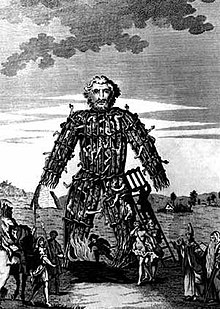
By Helen King (Regular Contributor)
What’s your favorite plot line? One of my friends is a genius when it comes to recommending sci-fi and fantasy books, and not just on the ‘If you loved that, you’ll like this’ principle. I remember once saying to her: ‘Human lost in alien universe, not much happens beyond trying to get used to the culture, relates to ancient myths, preferably includes a romantic human-alien relationship’. She could make a suggestion just on that basis.
Not Much Happens…Or Does It?
I really like the ‘not much happens’ plot in which there is a quest, but getting to the end of it isn’t the point; it’s more about the individuals who work together on the journey, and about the universe in which they find themselves.
Overall, though, my favorite plot has to be ‘person moves to alien environment in which s/he hasn’t a clue what is going on, but painfully discovers the truth’.
Cases in Point
An example of that would be George R.R. Martin’s The Dying of the Light (1977), which is my favorite fantasy novel ever, ever (and before you ask, yes, I am working through the DVDs of Game of Thrones as I write this). In this the female protagonist, Gwen Delvano, has married a member of the Kavalar race but really doesn’t understand the complexity of the relationship of her husband with his male comrade, let alone the honor codes of the Kavalar.
One of the variants of this is ‘person moves to deserted part of their own world/country and misunderstands completely what’s happening’. Here I’d include The Wicker Man (1973), that wonderful cult movie based around the theme of the survival of pagan rituals of death and rebirth in a Scottish island. Or Thomas Tryon’s Harvest Home (also 1973), a horror novel in which a family moves from New York City to a village in Connecticut where they still follow ‘the old ways’. There’s another of my favorite plot lines here too – the ‘community conspiracy’, where Something Is Going On but our naive hero doesn’t see it, until It’s Too Late!
Both The Wicker Man and Harvest Home use the theme of a human sacrifice being necessary to ensure the fertility of the land. That also features in a novel by the excellent Mary Renault, The King Must Die (1958), which tells the story of the ancient Greek hero Theseus. The person most obsessed with this particular plot line, in which the death of the king and his replacement by a younger one is somehow the cause of the annual renewal of nature, must have been J.G. Frazer. In his influential The Golden Bough (abridged edition, 1922, but earlier versions from 1890), Frazer wanted to understand the Roman myths of the priest-king of Nemi, who was killed at the end of the year and another man chosen to take his place. Mary Beard has analysed the errors Frazer made and the leaps he needed to take in order to get his theories about Nemi to work, and shows something of the popularity of The Golden Bough in the twentieth century, but it’s perhaps in the work of the Dutch scholar Henk Versnel that we find the best analysis of the popularity of Frazer: Versnel described Renault’s book ‘as a kind of romanticized “Frazer abridged””.
So it’s not just me who likes this plot line. Where the ‘person moves to alien environment in which s/he hasn’t a clue what is going on, but painfully discovers the truth’ plot perhaps reminds me of those times in my life when I have felt completely out of my depth, and the ‘community conspiracy’ plays to my paranoia, the ‘the king must die’ plot plays to an even deeper underlying and unspoken fear that (to quote Game of Thrones) ‘Winter is coming’ and that we have not done what we must to ensure that the cycle of life is renewed again.
Further reading:
Mary Beard, ‘Frazer, Leach, and Virgil: the popularity (and unpopularity) of The Golden Bough‘, Comparative Studies in Society and History, 34 (1992)
Henk Versnel, Inconsistencies in Greek and Roman Religion 2: Transition and reversal, Leiden: Brill, 1993
